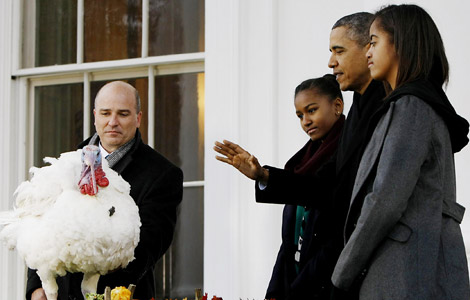

Below is a summary of what the parties have agreed on a range of policy areas, from the economy and Europe, to energy and bank regulation:
Labour Market/Pensions
A minimum wage of 8.50 euros will be introduced from the start of 2015, though there will be exceptions for collective wage agreements that are already in place until the end of 2016. From 2017, the minimum wage will be mandatory throughout Germany.
Listed companies and those with works councils must allot 30 percent of non-executive board seats to women from 2016. The parties said they would draw up legislation that would mean firms that fail to meet the target would have to leave board seats vacant.
Companies will no longer be able to employ temporary workers for longer than 18 months and after 9 months must pay them the same wages as permanent employees who do the same work.
The parties agreed to allow people who have worked for 45 years to retire at the age of 63, four years before the legal retirement age of 67, without facing any penalties. Pensions will be increased for mothers who had children before 1992.
Investment
The parties agreed to spend an extra 23 billion euros over the next four years, according to conservative and SPD sources.
They agreed to set aside 3 percent of gross domestic product (GDP) for investment in research.
The parties agreed to invest 6 billion euros in expanding all-day schools and day nurseries, SPD sources said.
They will "substantially increase" investment in transport infrastructure over the next four years and said they would finance this by expanding a toll on trucks and introducing a motorway toll on drivers of foreign-registered cars.
Europe
Commitment to banking union, including the creation of a European resolution body for large banks and a resolution fund financed by a levy on banks. No mention of where the resolution body should be anchored.
Use of the ESM rescue fund for direct recapitalisation of banks only as a last resort, and only after resolution mechanism has been agreed and ECB has assumed supervisory role. ESM funds for this purpose limited to 60 billion euros and disbursement must be approved by the the German parliament.
Until resolution fund has built up sufficient liquidity, European member states are responsible for rescuing their banks with their own funds.
Strong commitment that taxpayers should be shielded from any costs tied to failing banks.
Renewed push for an EU financial transactions tax (FTT) covering stocks, bonds, currencies and derivative transactions.
A rejection of all forms of debt mutualisation within the euro zone.
Euro states should agree binding reform contracts at European level that ensure competitiveness and sustainable finances.
Financial Regulation
German financial regulator Bafin will be asked to ensure the particularities of some German banks, including savings, development and private banks, are respected when the ECB takes over as euro zone bank supervisor next year.
Agreement that leverage ratio limits are needed for banks and that the Liikanen proposals to legally separate risky investment activities from traditional lending business should be introduced at European level.
Parties have agreed to limit speculation in raw materials markets. They favour position limits.
Germany may decide to introduce national laws to prevent tax avoidance by multinational firms.
Banks that violate tax laws will be sanctioned, including the possible withdrawal of their banking license.
Energy
Power generated from renewable sources will be increased to 40-45 percent of total production by 2025 and to 55-60 percent by 2035, up from about 25 percent now. The range will be set in law.
Reductions will be made to some subsidies for green energy, the cost of which is passed on to power consumers, to make the energy transition affordable. Aim to get revisions to the renewable energy law through parliament by the summer 2014.
The coalition will cut incentives for onshore wind power in areas where it is abundant but keep feed-in-tariffs for photovoltaic. For offshore wind parks, a degression model that enables operators to get financial help quicker in the early years of a park's development will be extended until 2019.
It will review exemptions granted to companies who do not have to pay renewable energy surcharges.
It will keep a moratorium on shale gas fracking and back EU plans to prop up carbon prices by backloading permits.
Foreign Policy
The parties have acknowledged that the EU may not be able to accept Turkey as a member but made clear its "privileged relationship" with Ankara should be developed further.
The parties describe a free trade deal between the EU and US as a "key project" that must be finalised. But they said they would seek to ensure EU data and consumer protection standards as well as social, environmental and food standards, are upheld.
Parties demand that China play a constructive role, in line with its economic and political importance, in helping solve international conflicts within the United Nations.
Transport
The parties have agreed to expand a toll on trucks, currently charged on motorways, to all national highways. That could bring in an extra 2.3 billion euros a year.
A motorway toll on drivers on foreign-registered cars to be introduced but parties to ensure this does not violate EU law.







